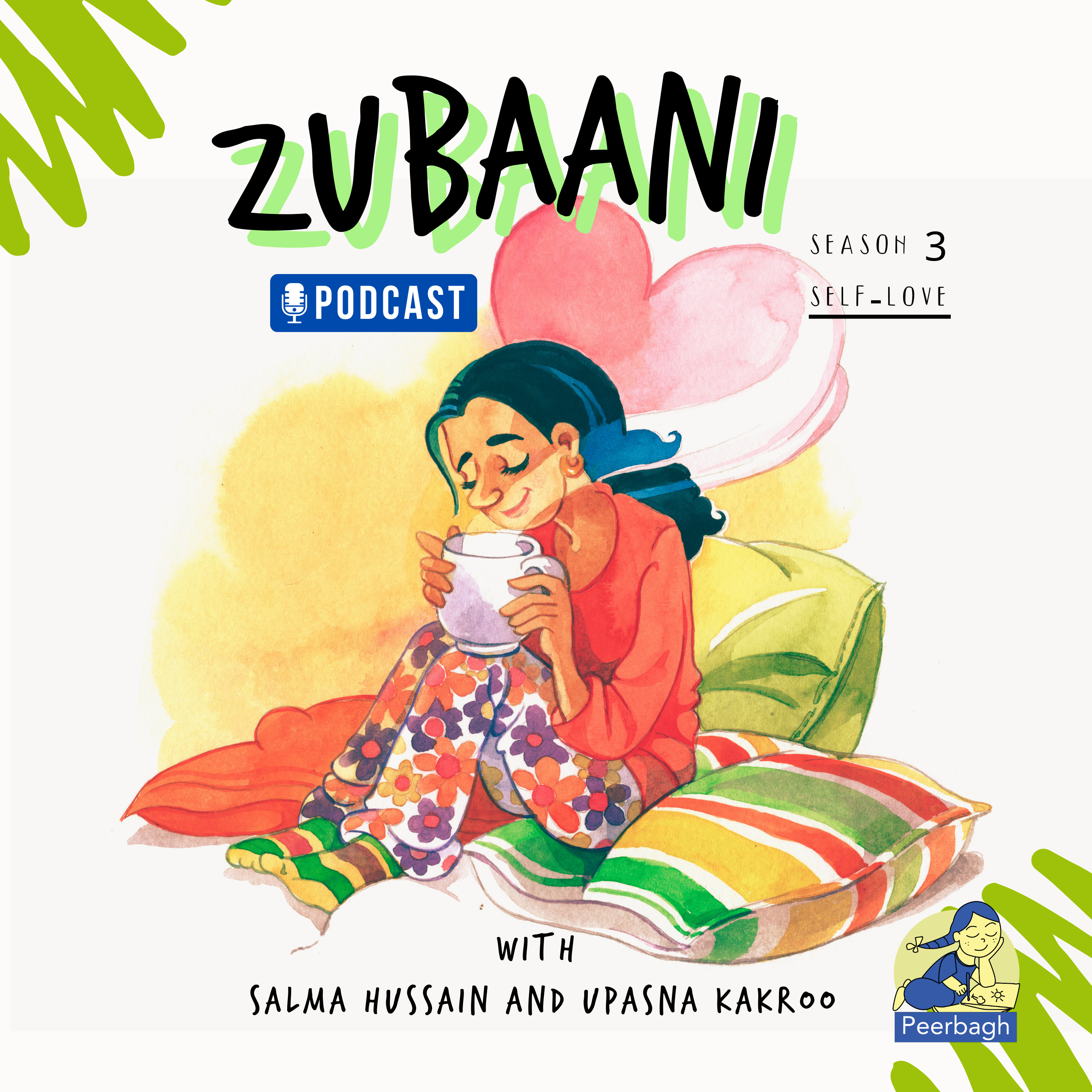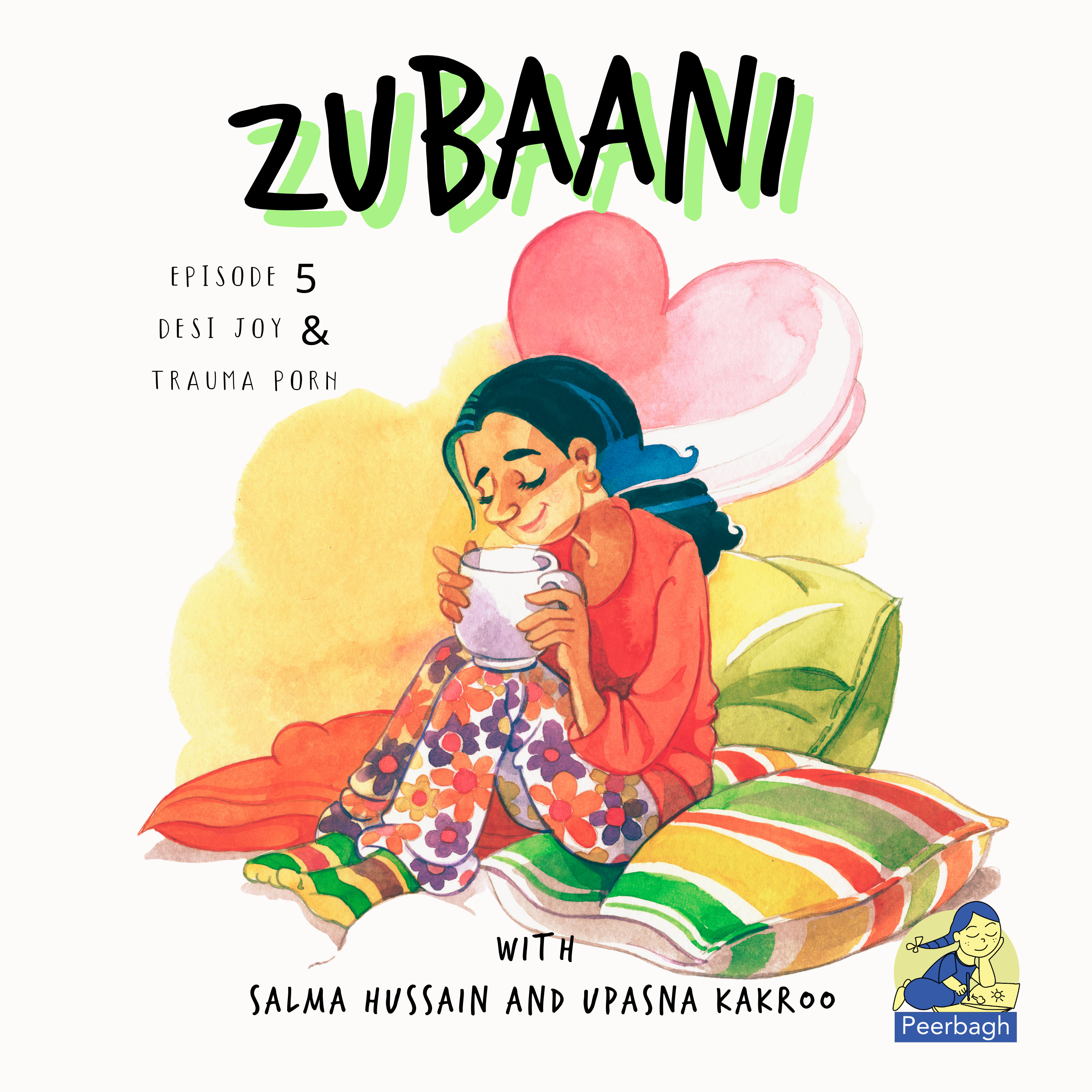Zubaani: South-Asian Parenting Tips and Storytelling

Zubaani: South-Asian Parenting Tips and Storytelling
Podcast Description
"Zubaani" in Hindustani translates to "through the language" or "by means of language" in English. The first season produced by Peerbagh discusses South-Asian parenting tips and storytelling with folk, personal, and regional stories that build our common myths and community as people.
Peerbagh is an award-winning 501c3 nonprofit organization incorporated in Austin, Texas. The nonprofit produces storytelling events and workshops and produces an illustrated South-Asia-inspired children’s quarterly magazine Bento.
Website: peerbagh.com/bookstore
Insta: instagram.com/peerbagh.stories
Podcast Insights
Content Themes
The podcast focuses on South Asian parenting, intergenerational storytelling, and the significance of language preservation. Specific topics include the challenges of raising multilingual children, cultural identity, and the impact of colonial history on language prioritization. Notable episodes feature discussions on modernizing cultural narratives for children and navigating the experiences of diaspora families.

“Zubaani” in Hindustani translates to “through the language” or “by means of language” in English. It is produced by nonprofit Peerbagh and discusses South-Asian parenting tips, books, storytelling with folk, personal, and regional stories that build our common myths and community as people.
Peerbagh is an award-winning 501c3 nonprofit organization incorporated in Austin, Texas. The nonprofit produces storytelling events and workshops and produces an illustrated South-Asia-inspired children’s quarterly magazine Bento.
Website: peerbagh.com/bookstore
Insta: instagram.com/peerbagh.stories
White authors aren't tasked with writing stories addressing colonialism, inequality, racism, etc. Desi writers have that burden placed upon them (internally & externally: our readership demands it and the publishing industry rewards it). How do we not feed into trauma porn? How do we nurture and grow a readership that connects with and cares about our ”joys” as much as our trauma? What is self-love other than our focus on stories of our successes, triumphs and joys?
Guest author: Nadir Shah
Co-hosts: Upasna Kakroo & Salma Hussain
Produced by: Peerbagh
Episode cover art: Niloufer Wadia
Research: Imtiaz Ali and Diksha Sharma
Supported by: The Very Asian Foundation
Books/media in the episode:
- Slumdog Millionaire (Vikas Swaroop); 2009 film by Danny Boyle
- You Started It (Jackie Khalileh)
- More then just a pretty face (Syed Masood)
- Honk Honk, Beep Beep, Putter Putt! (Rukhsana Khan)
- The Breadwinner (Nora Twomey)
- Bento (Peerbagh)
- Never Have I Ever (Mindy Kaling, 2020)

Disclaimer
This podcast’s information is provided for general reference and was obtained from publicly accessible sources. The Podcast Collaborative neither produces nor verifies the content, accuracy, or suitability of this podcast. Views and opinions belong solely to the podcast creators and guests.
For a complete disclaimer, please see our Full Disclaimer on the archive page. The Podcast Collaborative bears no responsibility for the podcast’s themes, language, or overall content. Listener discretion is advised. Read our Terms of Use and Privacy Policy for more details.